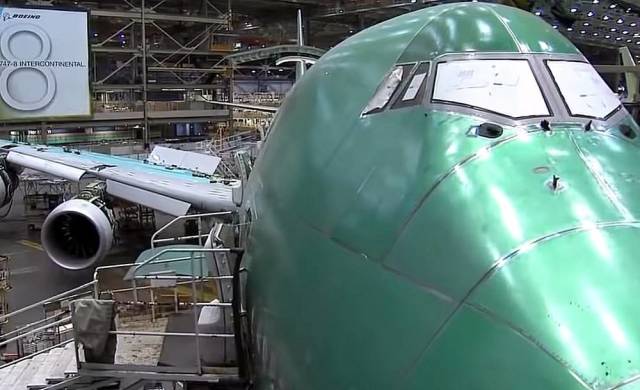After the start of the Russian operation on Ukrainian territory, the American aircraft manufacturer Boeing announced the suspension of the purchase of titanium in Russia, the closure of technical departments in Moscow and Kiev, as well as the termination of the supply of its spare parts to airlines from the Russian Federation. At the same time, the European aircraft manufacturer Airbus also suspended the supply of spare parts, but did not rush to abandon the Russian metal.
In 2014, against the background of the situation around the Crimea and Donbass, Airbus was already trying to find an alternative to Russian metal. There are no problems with titanium on our planet, since it ranks 7th in terms of prevalence in nature. It is a very light and durable metal with high corrosion resistance. Many countries of the world are engaged in the extraction of titanium ores and have competencies in the production of various products, including for the aviation industry. However, the European giant then could not find a worthy replacement for Russia. The quality of titanium packing (ingots, ingots) and the precision of processing of the final products did not allow Airbus to refuse cooperation with the Russian Federation. The aviation industry and air transportation in the world were on the rise at that time, the concern was increasing the production of aircraft, and airlines demanded more and Airbus simply could not afford such a luxury as refusing to do business with the Russians.
- stated recently from Airbus, when the company was asked why it continues to purchase titanium directly in Russia.
It should be taken into account that Europeans are buying not only Russian titanium. The other day, Airbus and Boeing delegations went to South Africa to negotiate an urgent increase in the volume of purchases of this metal. Now it is interesting to find out what Boeing is counting on, abandoning the Russian titanium. In principle, the American corporation does not hide that it does not want to finally break off relations with Russian partners.
Since July 2009, a joint venture between VSMPO-AVISMA and Boeing – Ural Boeing Manufacturing has been operating in Verkhnyaya Salda, Sverdlovsk Region. It is engaged in the machining of titanium stampings. In September 2018, the second Boeing plant for mechanical processing of titanium products was launched on the territory of the FEZ "Titanium Valley". The design center in Moscow is the largest in Eastern Europe, but not the only one on the planet.
Until 2020, Boeing was 25-35% dependent on Russian products. But the COVID-19 pandemic has affected air travel. The increased accident rate of Boeing aircraft in recent years has also added to the problems, which is why many air carriers have revised their priorities in favor of Airbus products. As a result, the corporation began to produce 1/3 fewer aircraft than before.
Temporarily abandoning Russian titanium, Boeing is counting on its own accumulated stocks, storage facilities of the US state Reserve and supplies from Kazakhstan, which ranks 10th in titanium ore production and produces 11% of titanium metal in the world (China is now in first place by all indicators). Titanium export from Kazakhstan passes through the territory of Russia through the port of St. Petersburg. If the Russians block this route, it will create problems for Boeing. However, Boeing can use the Kazakhstan - Azerbaijan- Georgia route and then by sea to where it is necessary, but it is more complicated and more expensive. There is a feeling that Boeing has simply decided to wait out the crisis period and not cause unnecessary criticism of Russophobes.

